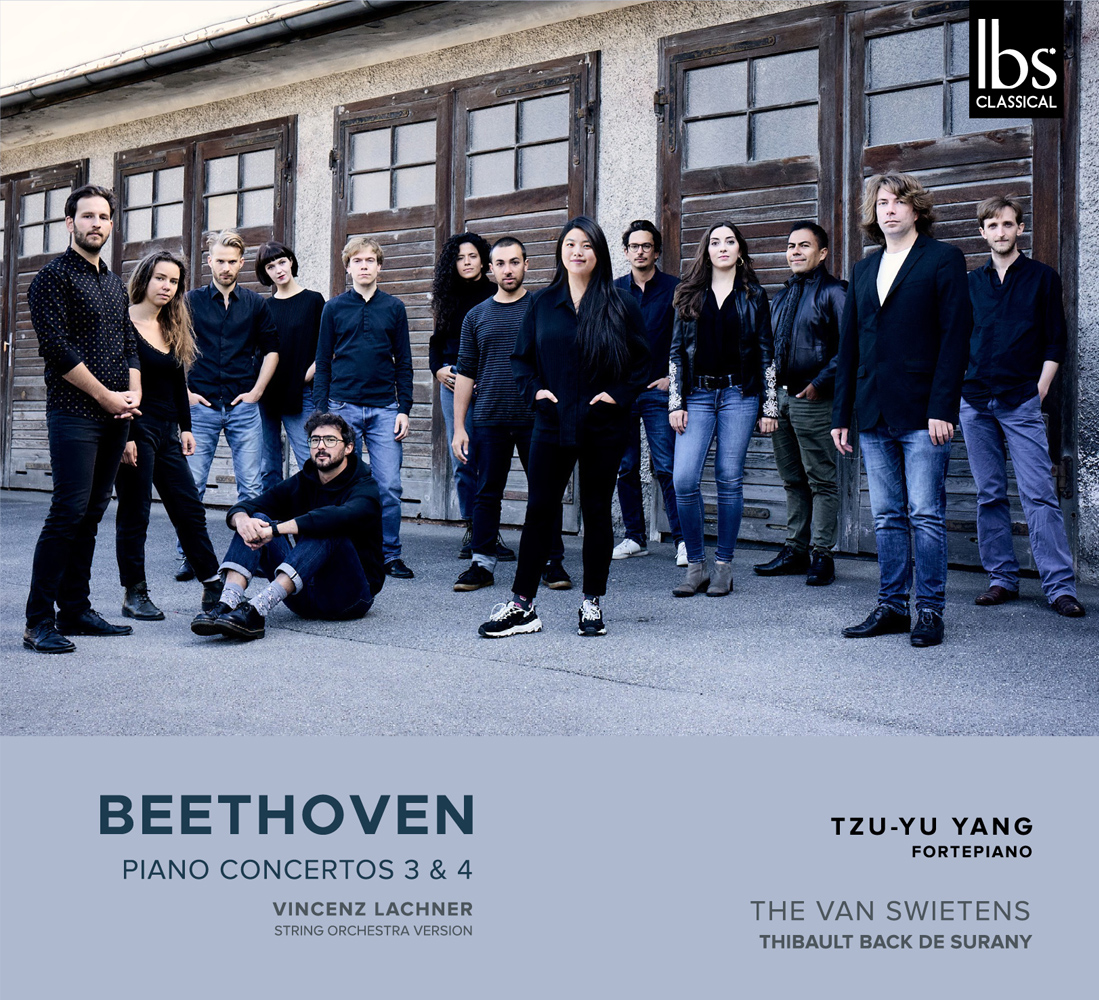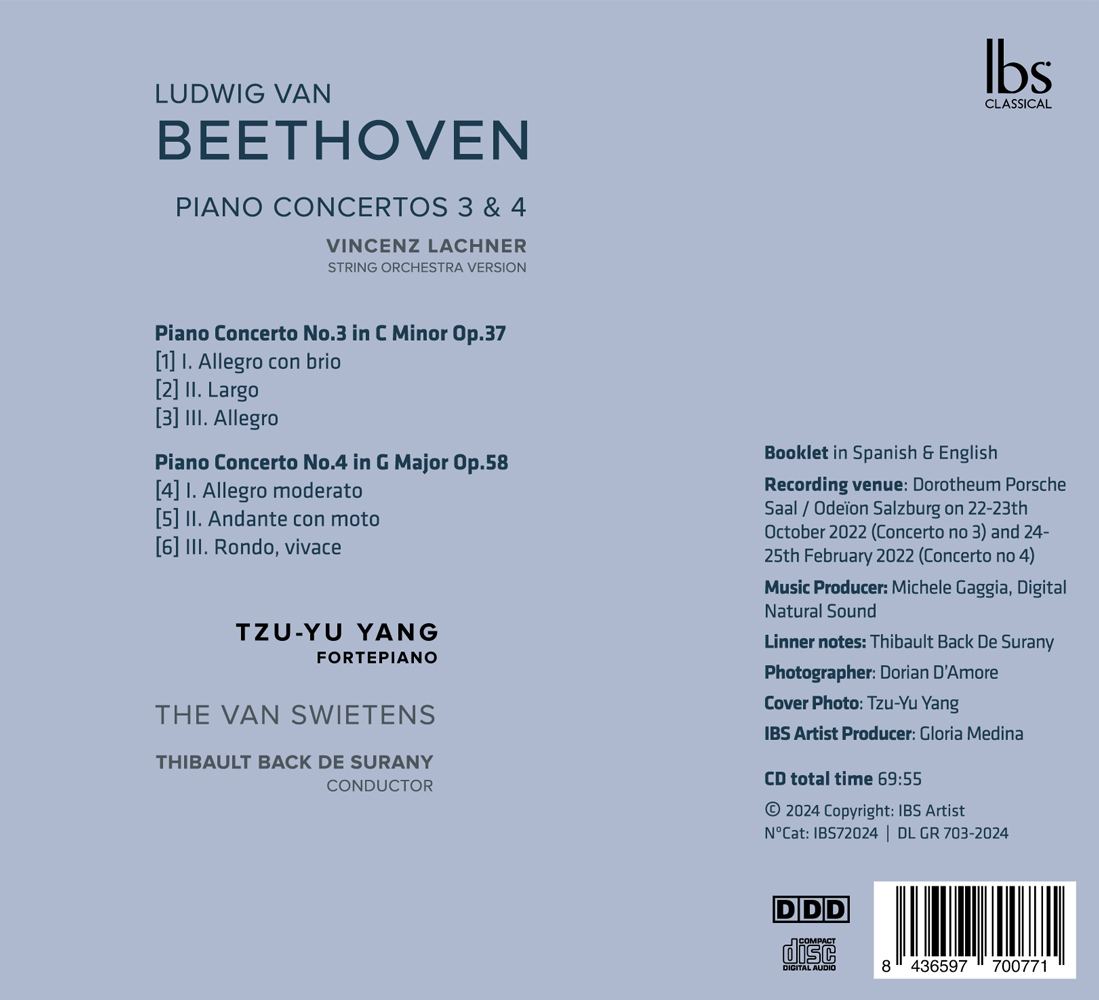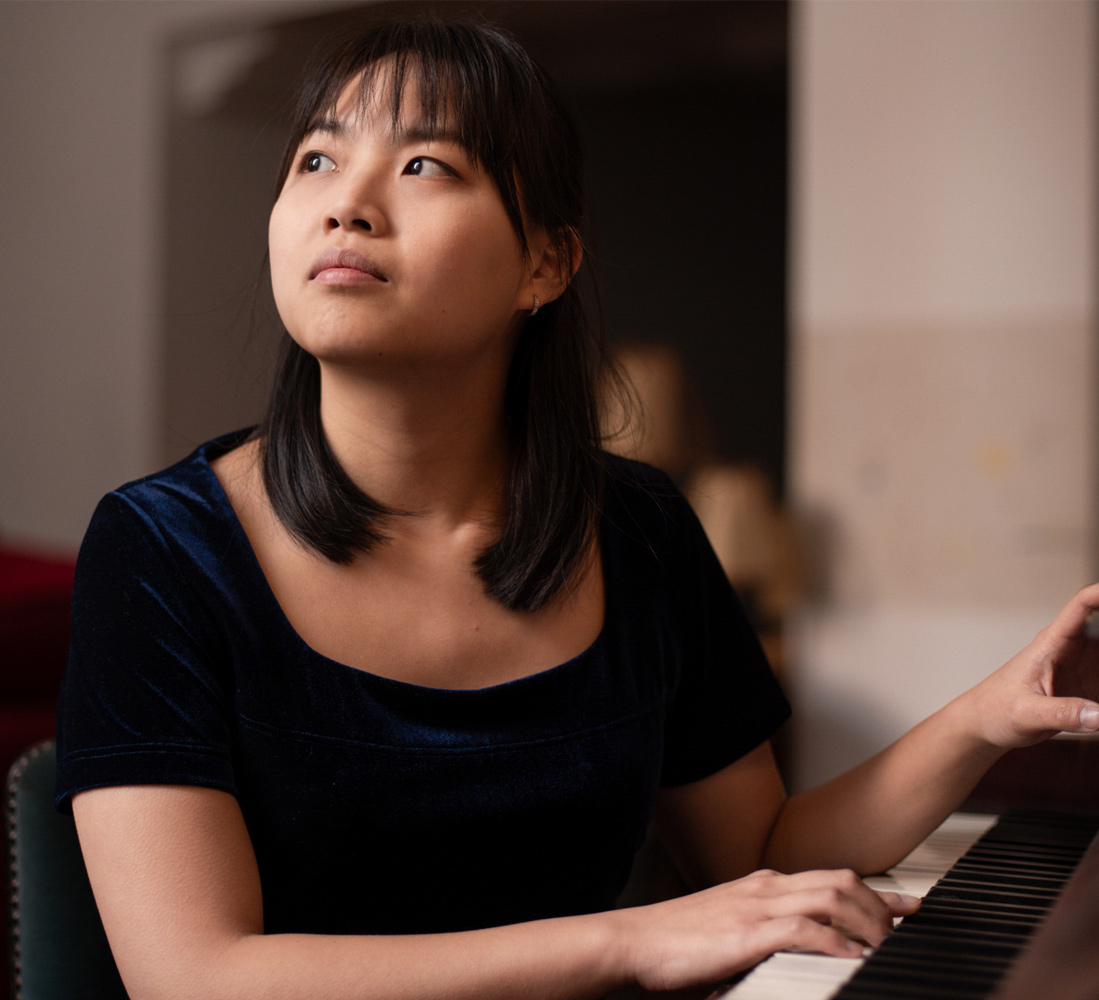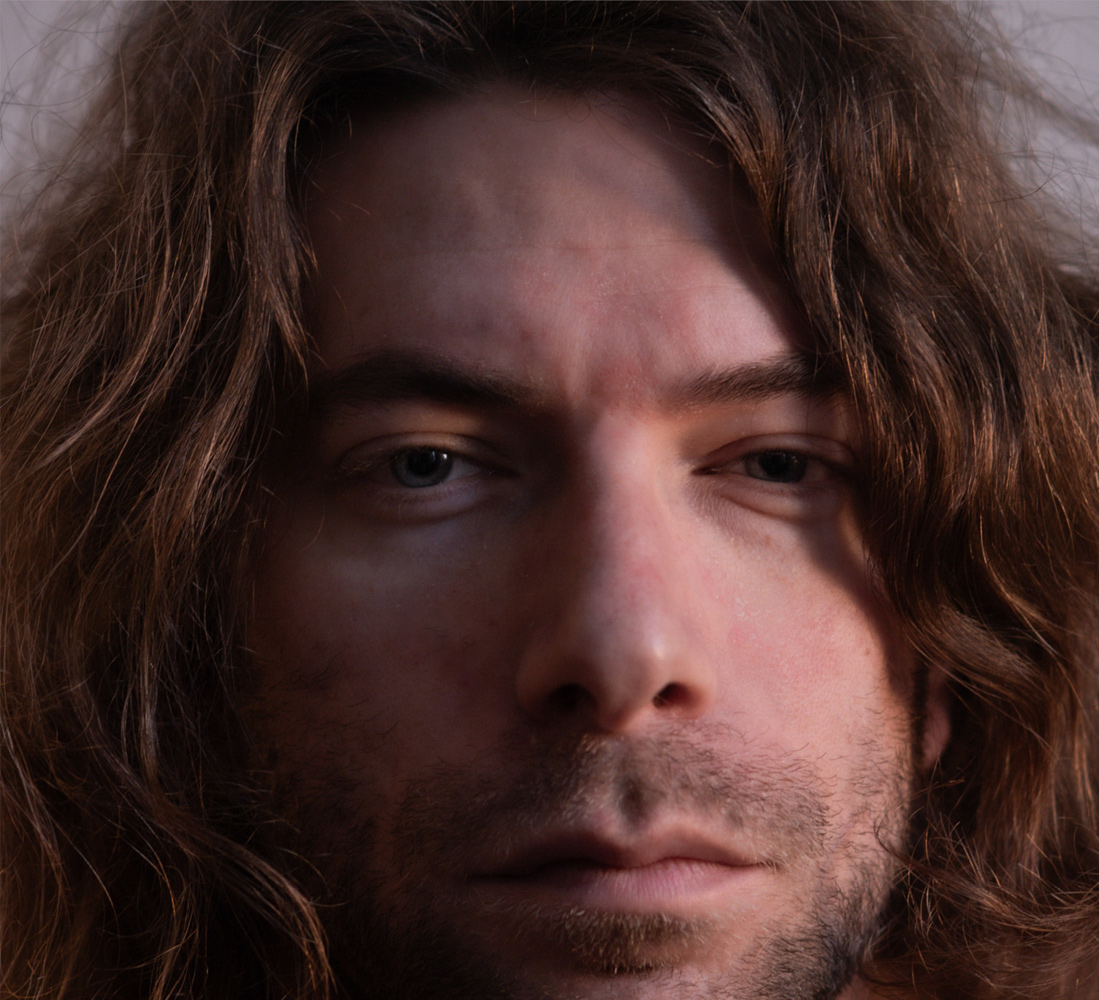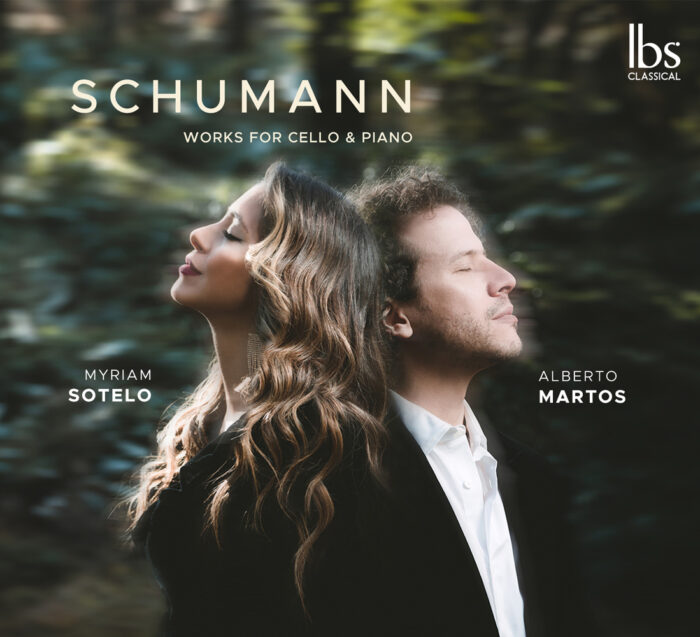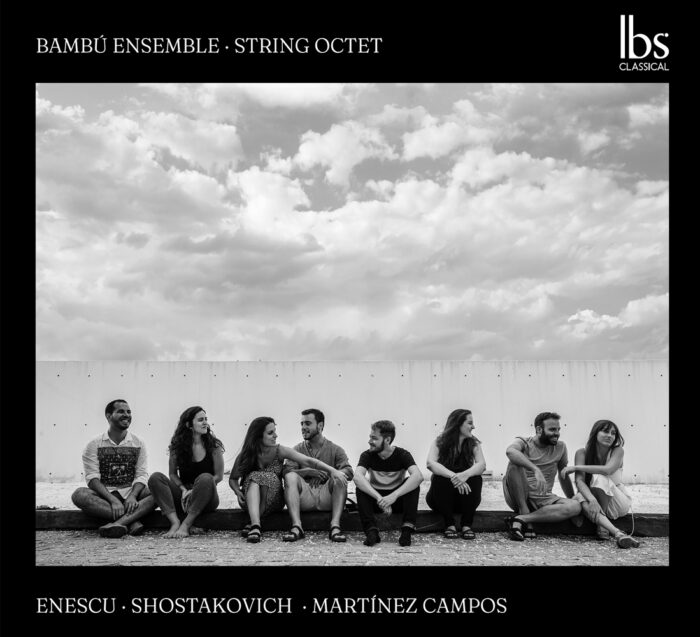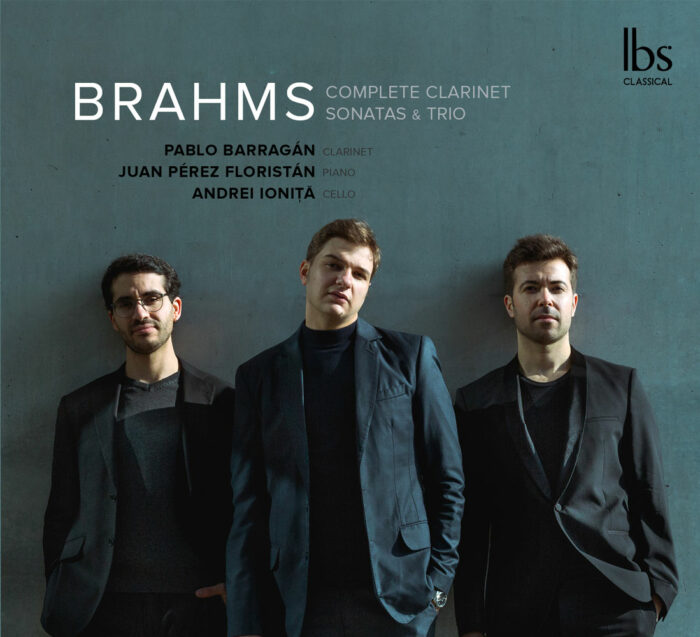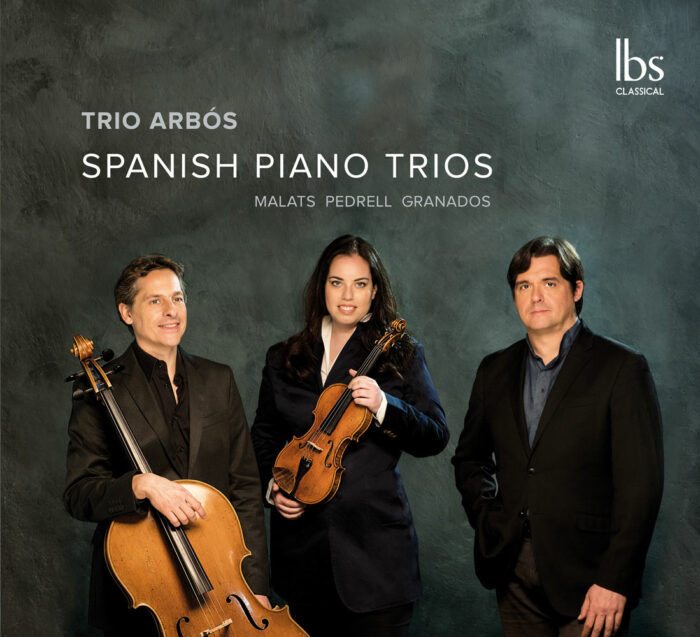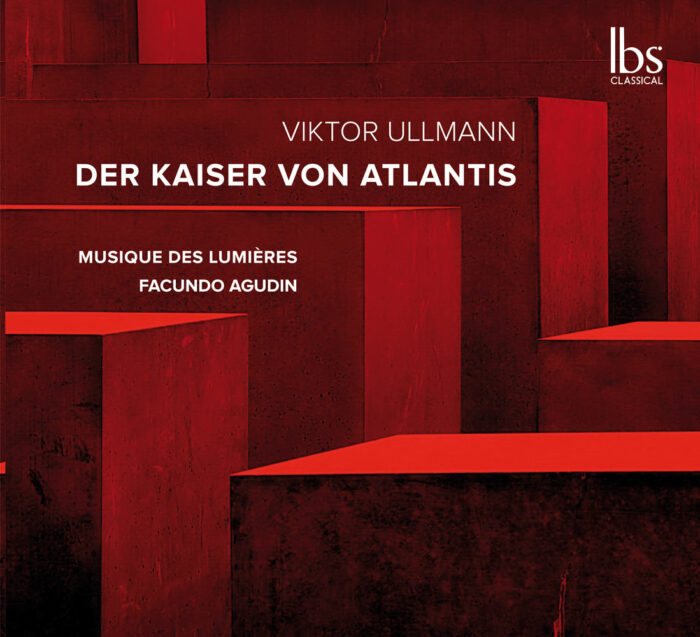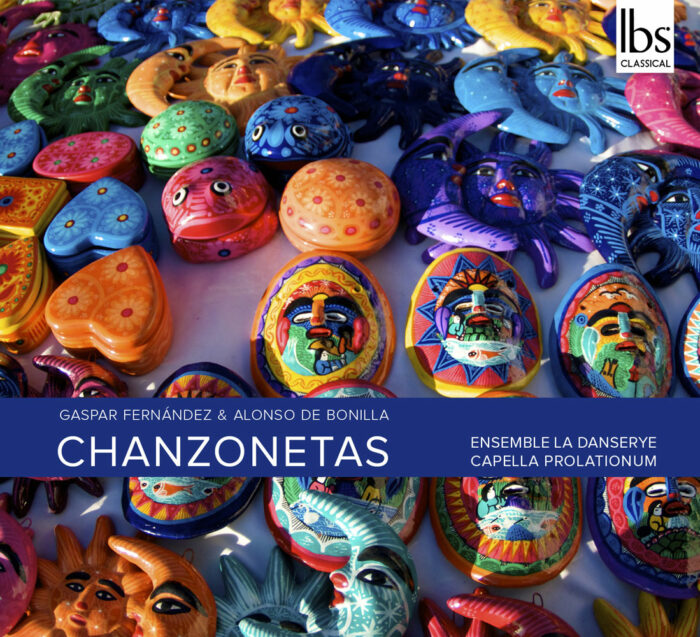Beethoven Piano Concertos
Beethoven Piano Concertos are amongst the most often performed and recorded works in the repertoire. However, the arrangement for string orchestra by Vincenz Lachner is a surprisingly rare find in recording history, even more so on period instruments.
What is lost in terms of orchestral colors is gained in clarity of texture, chamber-music like dialogue and perhaps more importantly an occasion to showcase aspects of string playing (articulation, portamento) as described by the likes of Louis Spohr, who closely worked with Beethoven.
It is also the perfect medium to accompany the wonderful instruments generously put at our disposal by Robert A. Brown. Often discussed and a subject of many controversies when tackling the Baroque repertoire, the debate regarding temperament is often cut short in Classical and Early Romantic performance. We do know of Beethoven’s preference for Kirnberger III, which we have used for the Fourth Concerto, whilst Young proved a better fit for the tonal discrepancies in the Third Concerto.
Another inspiration for this recording came from an article by Barry Cooper mentioning alternative solo passages in the Fourth Piano Concerto. They present an alternative, exciting change to the standard version and give us a glimpse in the mind of Beethoven the performer.
Vincenz Lachner
Born in 1811 in Rain am Lech, a small Bavarian Town, in a family of musicians, Vincenz Lachner is the youngest brother of Franz, also a composer, who befriended Franz Schubert. He was first taught by his father, an organist, and eventually trained in Augsburg and Vienna.
He then worked as a conductor and organist before moving to Mannheim where he was appointed Court Conductor in 1836, a city which was particularly active in the field of opera. He enjoyed a successful career as a conductor outside the walls of the city, performing all over Germany and as far as England.
He was also known as an educator, counting the likes of Fritz Steinbach, Hermann Levi or Max Bruch. A conservative musician, Lachner was a public opposant to the music of Richard Wagner, which precipitated the end of his conducting career in the 1870’s, where he moved to Karlsruhe to concentrate on teaching.
His compositions are mostly instrumental works, most notably symphonies, overtures, and string quartets, his output being nonetheless largely forgotten. He is perhaps most famous for his friendship with Johannes Brahms, who revealed his tendency for melancholia to Lachner in a letter describing a rather somber passage in the otherwise luminous Second Symphony.
The Players
Tzu-Yu Yang fortepiano
One of the leading historical keyboard instruments specialists of her generation, Tzu-Yu Yang has extensively performed around Europe and Asia. She was a finalist in the prestigious Bruges Fortepiano Competition. She currently works as a collaborative fortepianist at the University of Music and Performing Arts Vienna.
A graduate of the University Mozarteum Salzburg and the Hochschule für Musik, Theater und Medien Hannover, Tzu-Yu is a much sought after accompanist and chamber music partner.
Her passion for pedagogy is at the core of her musical life: Tzu-Yu has taught at the International Summer Academy of the Mozarteum and Musikum Salzburg and regularly organizes masterclasses and workshops in her home country, Taiwan.
Thibault Back de Surany conductor
One of the most versatile musicians of his generation, Thibault Back de Surany has
performed throughout Europe as well as in Japan, Taiwan and the United States.
He assisted Hans-Christoph Rademann at the Bach Akademie in Stuttgart for the seasons 2018-2019 and 2019-2021 and is currently assistant conductor of the OJEX in Badajoz, Spain and also works for Les Musiciens du Louvre under Marc Minkowski.
He has conducted orchestras such as the Ensemble Intercontemporain, the Ensemble Modern, the Freiburger Barockorchester, the Orchestra Extremadura or the Luxembourg Chamber Orchestra.
Conducting Fellow at the Aspen Music Festival in 2017, Thibault recently graduated with honors from his Masters studies under Hans-Christoph Rademann and Steffen Leißner at the Hochschule für Musik in Dresden, and had mentors such as Larry Rachleff, Reinhard Göbel and Roger Norrington.
He recently founded the Salzburg based ensemble The Van Swietens, dedicated to lesser known baroque, classical and early romantic repertoire, together with new music written for period instruments.
He has orchestrated and conducted the original soundtrack to the Netflix produced movies “Paris is Us” and “Années 20”.
Thibault also plays historical bass instruments and has completed his Viola da Gamba/Violone studies at the University Mozarteum Salzburg. He has performed and recorded with the likes of Anton Steck, Dorothee Oberlinger, Alfredo Bernardini or the Orfeo Barockorchester.
The Van Swietens
Founded in 2022 by their music director Thibault Back de Surany, The Van Swietens is an ensemble for dialog: dialog between the epochs, as they perform Baroque, Classical and Romantic music on period instruments as well as new music written especially for this medium.
Dialog between the arts, as they regularly collaborate with other art forms, such as contemporary dance. Dialog between performers and audience, as they engage in innovative concert formats, where audience members can exchange with composers or by erasing the distinction between stage and audience seats. Dialog between the nations, with their highly international roster, comprising musicians from 14 different countries.
Based in Salzburg, The Van Swietens made their debut in SZENE in January 2023, performing works by C. P. E. Bach J. G. Graun and W. A. Mozart along with premieres by Jakob Gruchmann and Marius Malanetchi. Their successful project “Haydn Tanzt!” unites Haydn early symphonies with modern dance. The “Frisch Komponiert!” concert series gives a voice to young composers around Salzburg, allowing them to present their works for period instruments in an informal setting.
